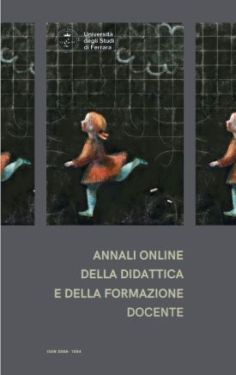Prima dei regoli: Georges Cuisenaire (1891-1976) pedagogista sperimentale nelle leçons-promenades
DOI:
https://doi.org/10.15160/2038-1034/2412Keywords:
primary school, experimental pedagogy, Georges Cuisenaire, history of education, history of mathematics educationAbstract
Georges Cuisenaire, teacher and then director of the municipal primary schools in Thuin, in the French-speaking region of Belgium (Wallonia), was the creator of the rods or numbers in color, didactic material for children’s mathematics education spread all over the world since the 1950s and still in use today. In 1935 he presented an experimental didactic proposal for primary school – developed with a team of colleagues – at the Universal Exposition in Brussels, actually carried out with the classes. It regards lessons that take place around outdoor walks in the area surrounding the school. The proposal was discussed in the book Leçons-promenades. Under the influence of the Belgian pedagogist Ovide Decroly (1871-1932) (the idea of a center of interest is crucial), emerges the cultural profile of a teacher in the field, open to new trends, capable of adapting the circulating ideas to the local context where he operates, who made his own the exhortation of Wilhelm August Lay (1862-1926), according to which every teacher must be an explorer of the child’s mind and an experimental pedagogist. The issue of calculation and measure emerges as crucial in observation and the exploration of the environment, and this case study confirms the attention that it received in the early years of development of experimental psychology and pedagogy.
Downloads
Published
Issue
Section
License

This work is licensed under a Creative Commons Attribution-NonCommercial-NoDerivatives 4.0 International License.






